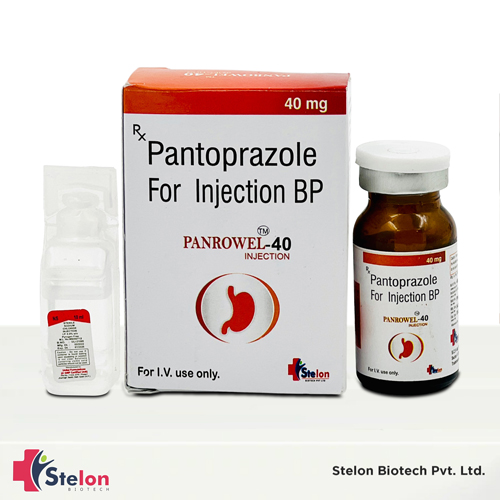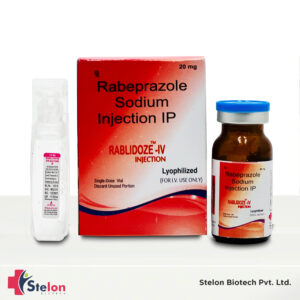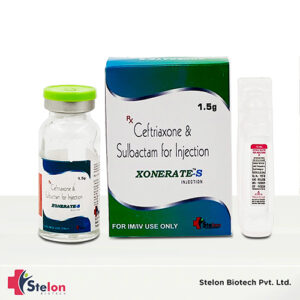- Home
- Injections
- PANROWEL-40 Pantoprazole 40mg Injection
PANROWEL-40 Pantoprazole 40mg Injection
Brand Name : PANROWEL-40
₹50.45
Pantoprazole 40mg Injection
Description
Pantoprazole injections are a form of medication used to treat various gastrointestinal conditions, particularly those related to excessive stomach acid production. Pantoprazole belongs to a class of drugs known as proton pump inhibitors (PPIs) and is commonly prescribed by healthcare professionals to manage conditions such as gastroesophageal reflux disease (GERD), gastric ulcers, and Zollinger-Ellison syndrome.
The injections are formulated with pantoprazole sodium, the active ingredient, which inhibits the action of proton pumps in the stomach lining. This mechanism works by reducing the production of gastric acid, thereby alleviating symptoms and promoting the healing of damaged tissues in the digestive tract.
These injections are generally reserved for cases where oral administration of pantoprazole is not feasible or sufficient, such as when a patient is unable to swallow or experiences severe symptoms requiring immediate relief. Additionally, the intravenous route may be preferred in situations where a rapid response is required, as the medication can reach therapeutic levels more quickly compared to oral forms.





